Israeli party leader’s support for ICC probe triggers uproar
The leader of an Israeli political party has come under harsh criticism after voicing support for the International Criminal Court (ICC)’s decision to open an investigation into war crimes perpetrated by the Tel Aviv regime’s forces in the occupied Palestinian territories.
The ICC’s Chief Prosecutor Fatou Bensouda announced in a statement last week that her office would formally probe the atrocities committed by the Israeli military against Palestinians in the occupied West Bank, the besieged Gaza Strip, and East Jerusalem al-Quds since 1967.
Bensouda had earlier said that a five-year preliminary examination of the “situation in the state of Palestine” had provided her with “reasonable basis” to launch a war crimes investigation into Israeli military actions in the besieged Gaza Strip as well as Israeli settlement activity in the occupied West Bank.
The ICC verdict was condemned by Israel but praised by Palestinians and international rights organizations.
Nitzan Horowitz, chairman of the Israeli left-wing Meretz party, said on Saturday that while he was pained by the International Criminal Court’s opening of a war crimes probe against Israel, “There were grounds for the decision.”
Urging Tel Aviv to cooperate with the Hague-based tribunal, Horowitz said the investigation was “justified” as there were things that should not have been done and that there was massive damage done to the civilian population.
“The solution for us is not to say that the Hague is anti-Semitic, but rather to advance negotiations with the Palestinians that bring about a solution. Then there will be no reason for the Hague,” he added.
Asked whether the decision had crossed a red line, Horowitz said, "The red line is that there are no negotiations with the Palestinians and we're continuing to build settlements like there's no tomorrow, and then we wonder why there are steps taken against that."
Horowitz’s comments sparked widespread uproar from Israeli lawmakers, mostly on the right, as well as other political parties.
Prime Minister Benjamin Netanyahu’s Likud Party reacted to the remarks by saying, Horowitz “is abandoning IDF soldiers who guard him and all of us,” and that the premier would fight the “anti-Semitic” decision.
Gideon Sa’ar, head of the New Hope party, dismissed the remark as “miserable” and urged Horowitz to apologize for “supporting an anti-Semitic decision.”
Ayelet Shaked, a senior member of Yamina MK, said her party would not join a coalition with Meretz, saying Horowitz was an “embarrassment for the Knesset” as he had justified the ICC’s “political and anti-Semitic activity persecuting IDF soldiers.”
Blue and White party leader Benny Gantz also criticized Horowitz for his “unacceptable” remark.
Itamar Ben-Gvir, an extreme-right candidate who leads the Otzma Yehudit, said he had called on Israel’s top court to open an investigation against Horowitz on suspicion of “treason.”
Last month, the ICC confirmed that the territories occupied by Israel in a 1967 war were subject to its jurisdiction.
Israel occupied East Jerusalem al-Quds, the West Bank, and the Gaza Strip — territories the Palestinians want for a future state — during the Six-Day War in 1967. It later had to withdraw from Gaza.
About 700,000 Israelis live in over 230 illegal settlements built in the West Bank and East Jerusalem al-Quds since then. The settlements are illegal under international law, but the international community has done little to pressure the Israeli regime into reversing its policies.
Israeli media reports said the International Criminal Court would send Tel Aviv a letter next week and formally detail the scope of its war crimes investigation against Palestinians, with Israel then having only 30 days to respond.
Netanyahu and Gantz have reportedly begun reaching out to counterparts throughout Europe to galvanize support against the case.
Palestine is a party to the ICC’s founding Rome Statute and has long carried out diplomatic efforts for an investigation into the war crimes by Israel in the occupied territories.
Both Israel and the United States have refused to sign up to the ICC, which was set up in 2002 to be the only global tribunal trying the world’s worst crimes.
VIDEO | Brazil: Uba River floods destroy bridge and buildings, leave people missing
Iran-US negotiators take break in Geneva, talks to resume
VIDEO | ‘Clear stance’: Iran reiterates its nuclear rights as per NPT, intl. law
Press group: Israel accountable for two-thirds of 129 journalist fatalities in 2025
Iran summons Dutch ambassador to protest diplomat’s smuggling attempt
Iran’s rejection of nuclear weapons based on religious beliefs: Pezeshkian
'Profound moral decline': Netizens blast Modi for whitewashing genocide in Knesset speech
VIDEO | Venezuela launches 'love is rewarded with love' campaign in solidarity with Cuban people






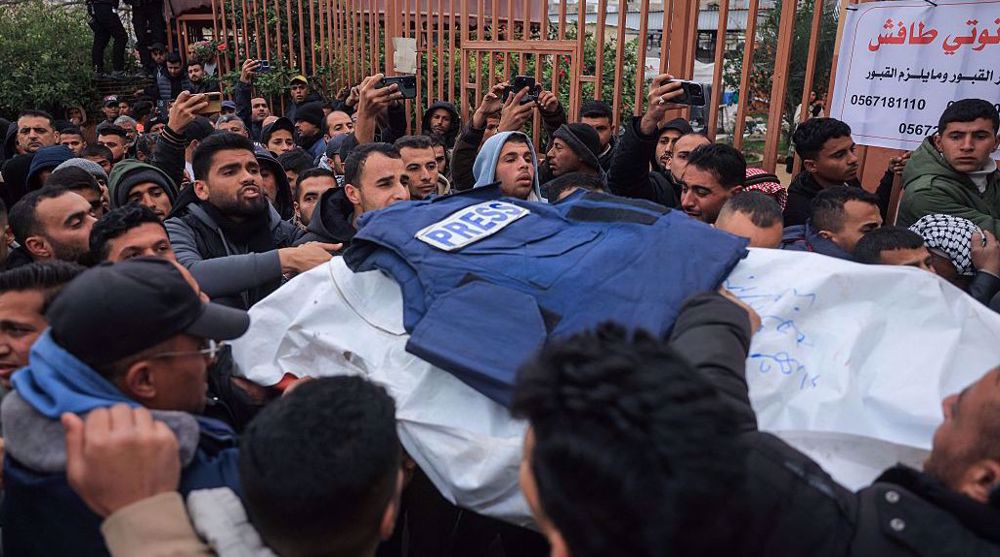
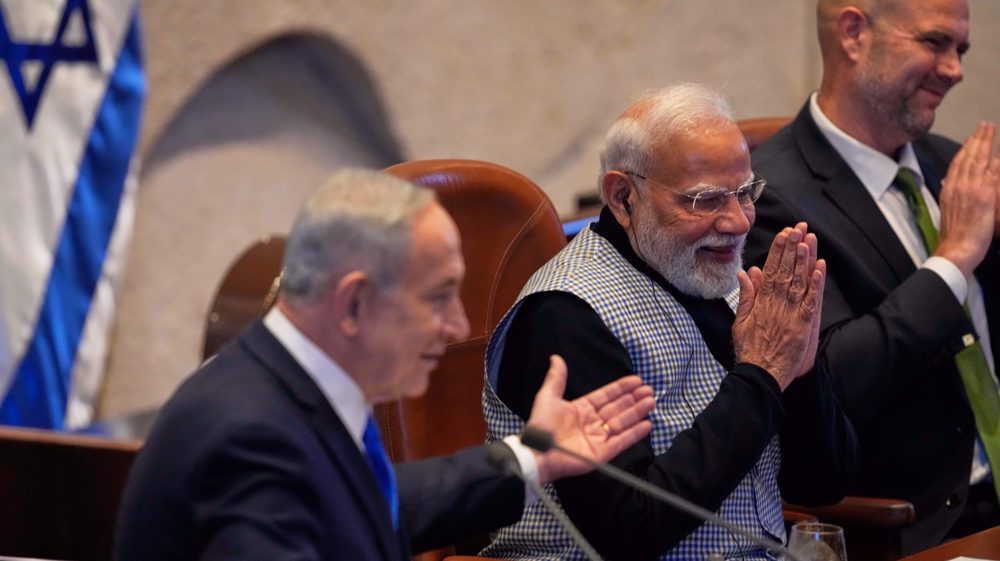
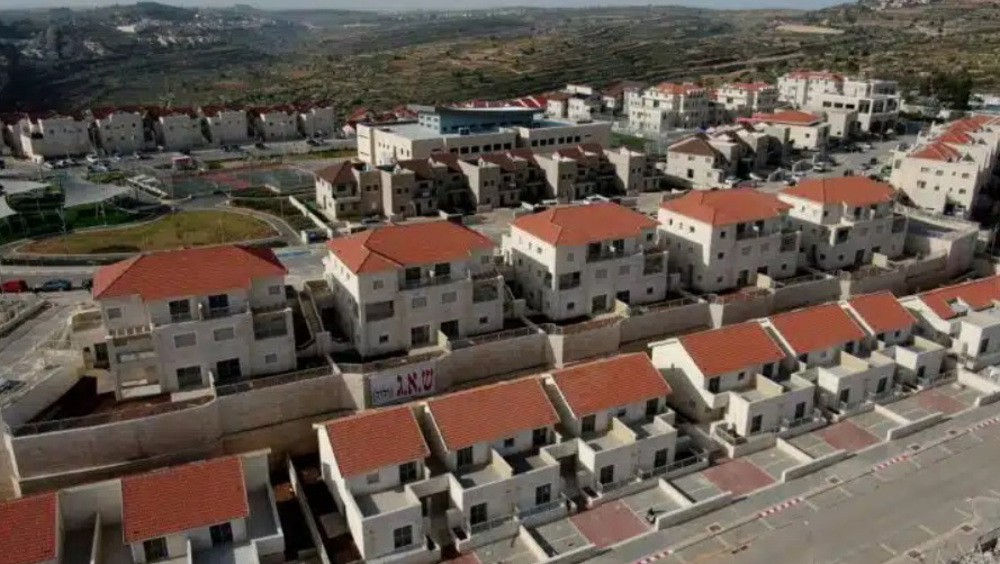





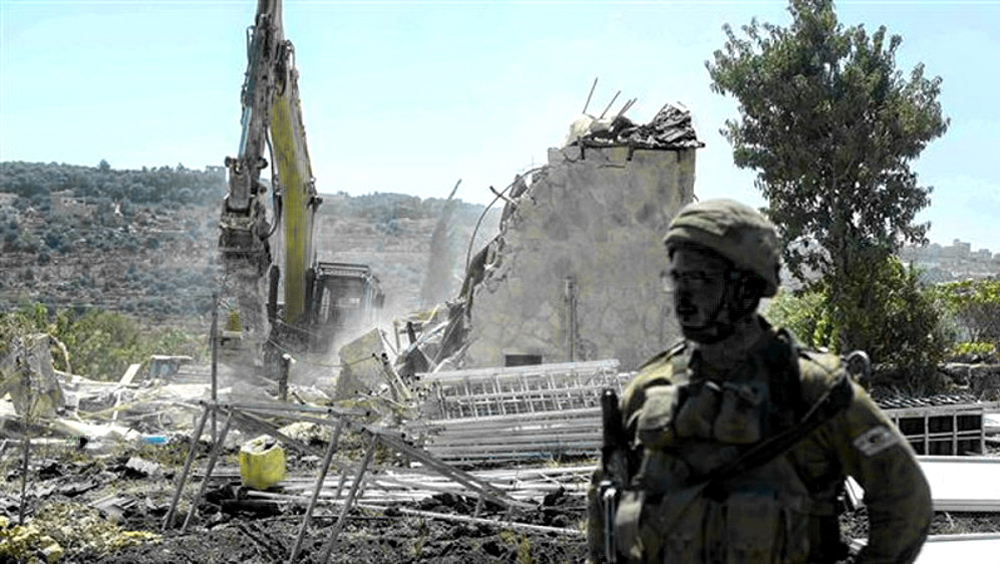
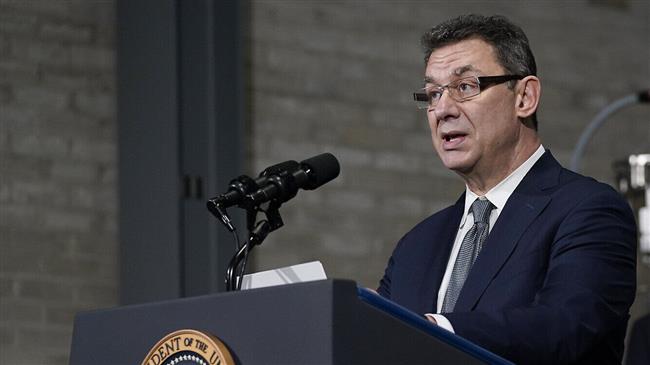
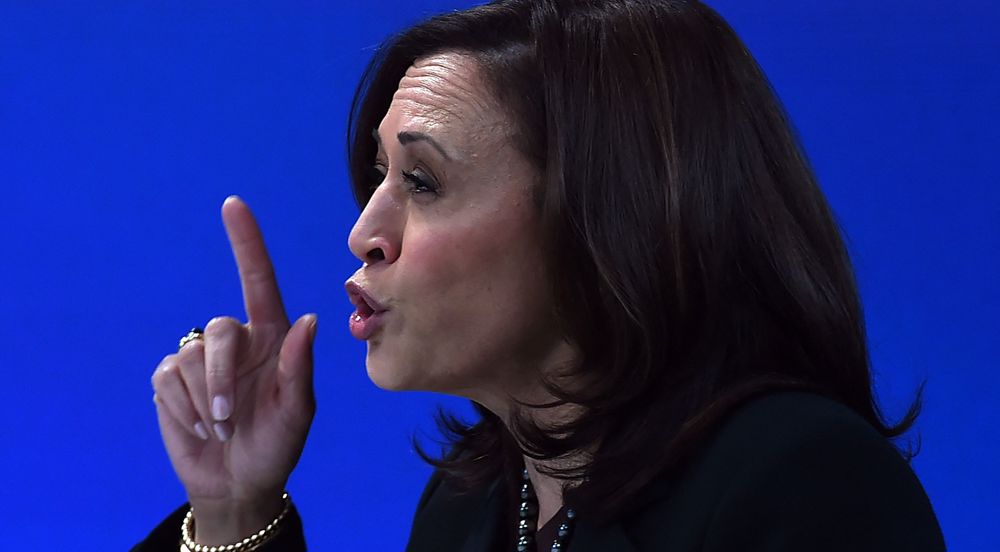
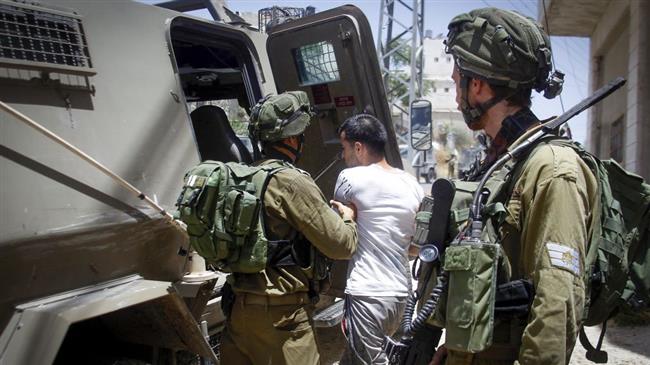

 This makes it easy to access the Press TV website
This makes it easy to access the Press TV website